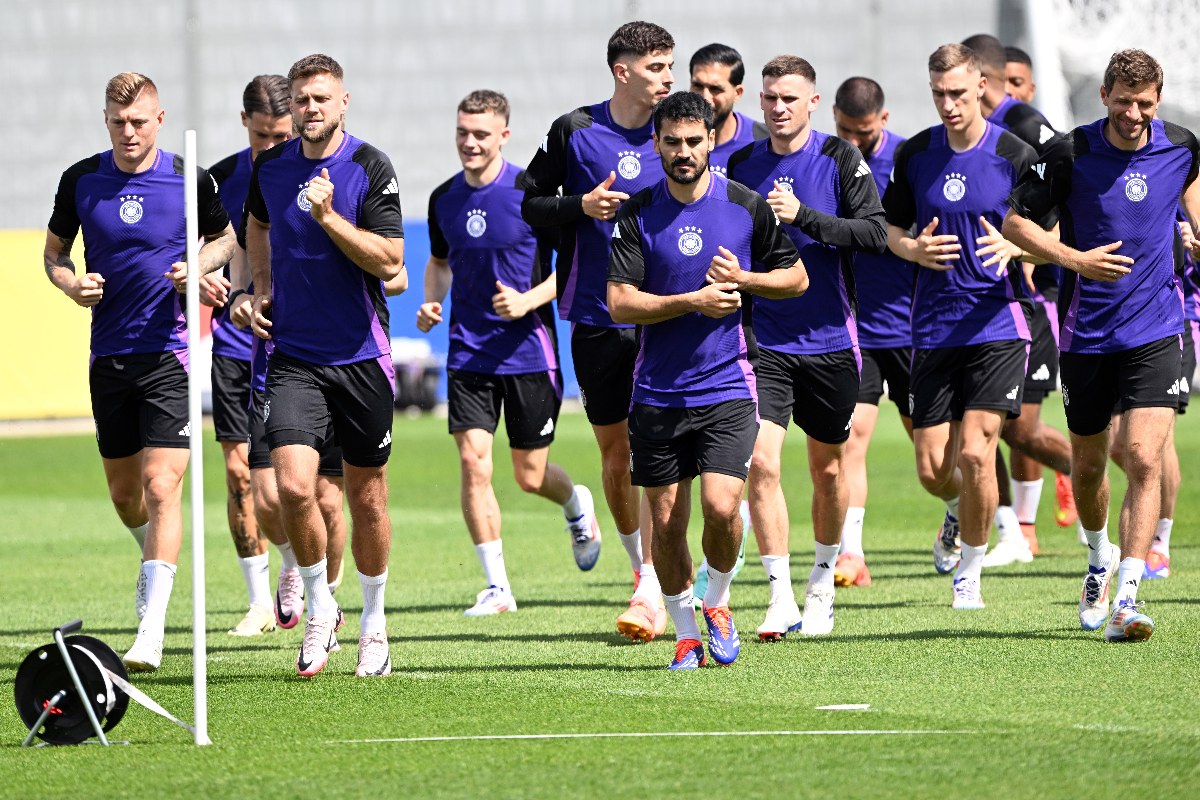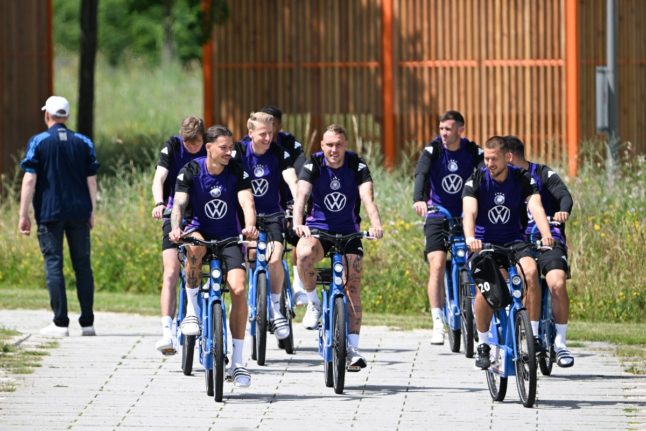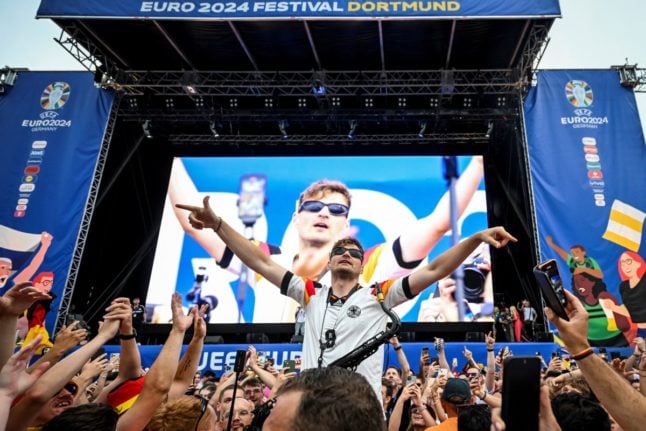The host nation still views Campo Bahia as a key factor in building the camaraderie and team spirit to lay a winning foundation.
Now on home soil – and with isolation a little harder to come by than in the Brazilian jungle – the DFB have chosen the village of Herzogenaurach, a location historically intertwined with sport and football in Germany.
Former team director and Euro 1996 winner Oliver Bierhoff, who quit after Germany’s early exit at the 2022 World Cup in Qatar, played a key role in developing the tournament base — known as the ‘Home Ground’ — alongside Adidas.
Bierhoff said the camp was designed to “awaken a spirit, a determination, a will to win” just as Campo Bahia had done a decade ago.
READ ALSO: How (and where) to watch Euro 2024 games in Germany this week
‘The town of bent necks’
A picturesque town of thatched houses and quiet squares with just over 20,000 residents, Herzogenaurach has made an outsized mark on world sport.
Two brothers – Adolf and Rudolf – founded the Dassler Brothers Shoe Company in 1919, but fell out just after World War II and decided to go their own ways.
In 1948, younger brother Adolf, nicknamed ‘Adi’, named his company Adidas while Rudolf founded Puma.
The Dassler brothers died in the 1970s having never made amends and what was a family feud spread to the entire town.
Herzogenaurach was nicknamed “the town of bent necks”, with residents known for looking at strangers’ shoes to work out which brand they were wearing before saying hello.

As rank underdogs, Germany won the 1954 World Cup final 3-2 on sodden turf against Hungary thanks to Adidas’ adjustable-stud boots.
Just outside the Adidas base, Adi has been commemorated with a bronze statue of him mending football boots.
Adidas’ relationship with the German national team remained a constant until 2024, when the DFB announced it had signed a deal with Nike from 2027, with the US sportswear giant reportedly doubling Adidas’ offer.
After a groundswell of criticism about the decision, Adidas have set about showing the DFB what they will be missing.
‘Feel at home’
Adidas CEO Bjorn Gulden, poached from Puma in 2023, said after the announcement “no matter what happens in 2027, we’re 100 percent behind the team.
“We’re fans and you’re family.”
Controversial at first, Germany’s pink-purple Euro 2024 kit has sold out across the country and is now officially the team’s best-selling away shirt of all time.
Despite the pending departure, Adidas updated the training facilities and living quarters at the Home Ground, which include an office for the coaches, meeting rooms, dining room, fitness and regeneration facilities and a common area with video consoles.
Heavily guarded and encircled by high trees to foil the prying eyes of the German tabloids and their drones, players live in three- or four-bedroom bungalows surrounding a pool.
Bayern defender Joshua Kimmich revealed the accommodation is divided up “by position”, adding “I’m in the unit with the other full-backs.”
The squad have made the most of their time in camp, with viral videos showing the players playing games, watching other matches and answering quiz questions about their teammates.
Veteran goalkeeper Manuel Neuer, who alongside Toni Kroos and Thomas Mueller is one of three 2014 World Cup winners in the squad, said the team was “delighted to be back at Adidas again.”
“Those who have been here longer already know their way around and feel a bit at home.”
By Daniel WIGHTON



 Please whitelist us to continue reading.
Please whitelist us to continue reading.
Member comments